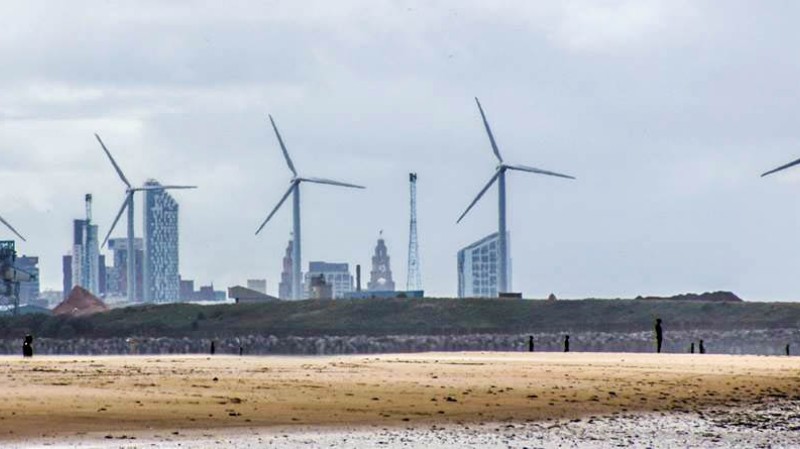You are here: What is an Energy and Transportation search and why do I need it?
These searches will provide you with information about any energy and transportation infrastructure near to the property you are buying. For example, HS2, Crossrail, fracking or wind farms.
All of the above can have an impact on your property. High profile public concern over HS2, Crossrail, hydraulic fracturing (fracking) and wind farms mean that these are real factors that can influence property prices. They can also have a severe impact upon your enjoyment of property.

Are they mandatory?
No, they are not one of the standard conveyancing searches and are not required to be carried out to satisfy the standard instructions defined in The UK Finance Mortgage Lender’s Handbook. However, for the reasons mentioned above, it is vital to take your legal professional’s advice on this before you commit to purchasing a property that might be at risk.
The handbook comes in two parts, the first part applies to all UK Finance members –members of the organisation represent 97% of lending in the UK.
Part 2 contains a section for each member, detailing their requirements. This is where your conveyancer will find the list of which searches are required by your lender. In most cases the minimum required will be:
- Land registry searches (both Register and Title Plan)
- Local search - either Regulated or Council (both LLC1 and CON29)
- Water and Drainage - Regulated or CON29DW
- Environmental (likely to contain an element of ground stability assessment)
Further reports required include (but aren’t limited to):
- Flood
- Coal
- Cheshire Brine
- Limestone
- China and ball clay
- Tin
- Bath stone
- Radon gas
- Chancel repair liability reports (if the last purchase was before 12/10/13)
- Canal and river search
- Planning reports
- Highways
See other articles for more information.
When are they ordered?
Searches should be ordered as soon as you appoint your conveyancing solicitor: as a minimum this includes Land Registry and Local Searches, Water and Drainage Searches, an Environmental Search, a Flood Risk Report and any specifically required searches based on geography, such as Radon Gas, Mining or China Clay searches.
One of the first things your conveyancer will do is ask you for money ‘on account’ to pay for these searches.
What do they tell you?
The contents of this report depend on where your legal professional gets it but potentially the information could include:
Existing or proposed oil, gas, coalbed methane and shale gas sites
Whether the property is within either a Licensed Block or a block that has been offered for future exploration
Existing or proposed large scale energy infrastructure projects (for example: the Yorkshire & Humber CCS Pipeline, the Keuper Gas Storage Project, the Richborough Connection Project)
Existing large scale transmission networks
Existing or proposed power stations including nuclear facilities
Existing or proposed wind turbines, wind farms and solar farms with full planning application details to allow for further investigation
HS2 data: the route and stations but also safeguarding areas, compensation schemes, noise and visual impact assessment data. The nearest point both over and below ground, and the track grade and maximum speed of the train at the nearest point
Crossrail 1 and 2 route, overall construction timetable and station location. Could also include any designated safeguarding areas
Full route and operational times for the London Underground and Docklands Light Railway alongside modelled depth data.
Stations and proposed tube extensions.
Route information for the Tyne and Wear Metro, Merseyrail and Glasgow Subway
Active and historical railways/tramways and tunnels
Location of nearby railway stations.
They are also like to include a £10m professional indemnity insurance meaning that all professional parties involved in the property transaction are covered by the indemnity insurance.
Are there different types?
Yes, the main search providers all compile their own versions of a similar product
What do they cost?
This depends on the provider that your conveyancing professional uses. Typical pricing starts from £30 plus VAT.
How long do they last?
When acting on a conveyance, your solicitor must follow The UK Finance Mortgage Lender’s Handbook, it says that searches must be no more than 6 months old on completion.
A lot can change in a short space of time with property so even if this wasn't the case, it’s important that the information you have about your new property is as up to date as possible. Your conveyancer will let you know if the search is coming close to expiry.
If you are thinking of buying or selling your home, you may find some of these services useful:
Conveyancing
Get instant estimates from Conveyancers and Solicitors in your local area
Mortgage Brokers
I need help getting a mortgage
Estate Agent
Find a local Estate Agent
Valuation Surveys
If you need a Valuation Survey
Building Surveys
I want a local surveyor to do a Building Survey for me
Removals
I want to find a removal company
Energy Performance Certificate
Energy Performance Certificates